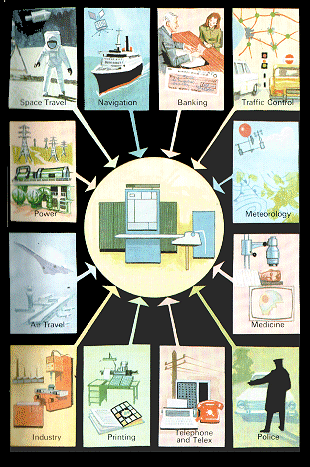
|
As we have already mentioned, there are a great many kinds
of computers, some being designed for a particular purpose. Our 'typical'
machine will very likely be used for 'data processing' in a large manufacturing
organisation in which there will be a great amount of routine office work.
For instance, the pay-roll has to be prepared every week and the names and
wages of all the employees printed on their individual pay slips. Records
of all the employees must be maintained and continually brought up to date
as some people leave and others are engaged.
This computer may also be used to calculate the amount of material of different
kinds that will be needed in factory production, and thus help to bring the
hundreds of parts forward to the assembly line in the right sequence and
at the right time. Records of sales of different products can be kept and
forecasts made of possible future sales.
An organisation would use a computer only if by so doing it is more profitable.
This profitability might be related either to increase in production
or to reduction of wastage The introduction of a computer rarely decreases
a labour force. It is more likely, due to the increase in production, to
expand labour requirements within parts of the organisation. |

